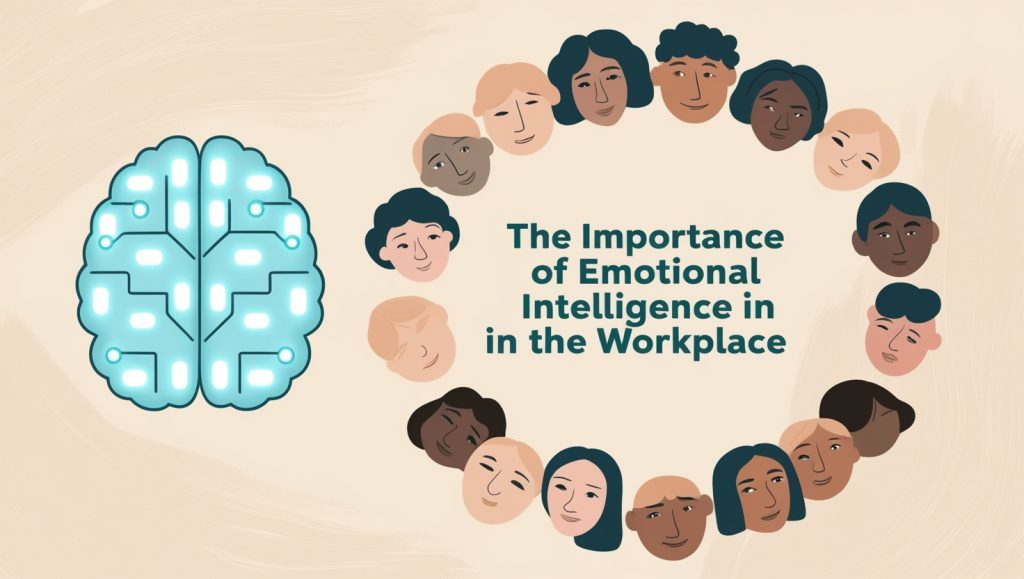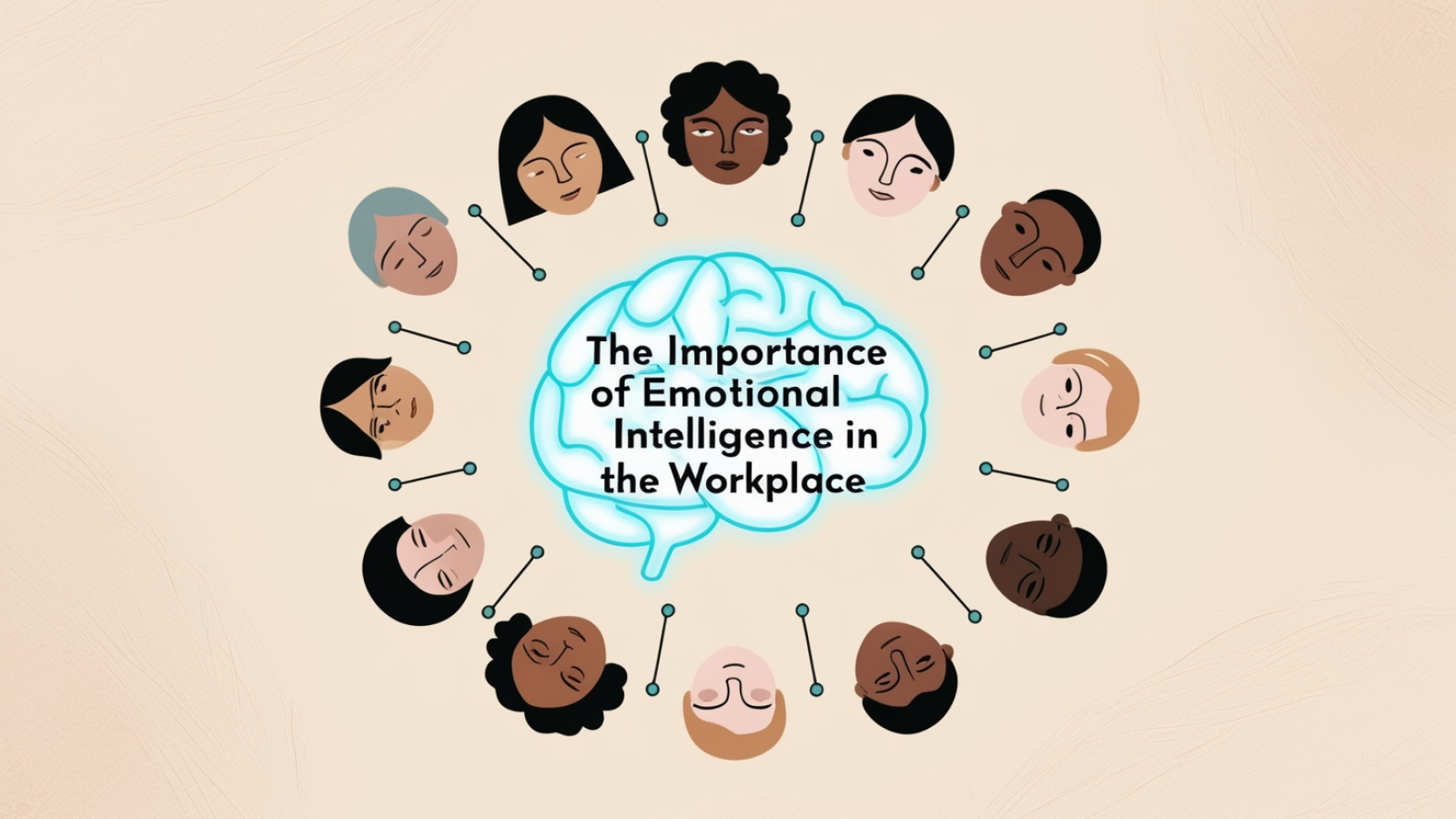Emotional intelligence (EI), also known as emotional quotient (EQ), refers to the ability to recognize, understand, manage, and utilize emotions effectively in oneself and others. In today’s dynamic work environments, where collaboration, communication, and leadership are paramount, emotional intelligence has become a crucial skill. This article delves into the importance of emotional intelligence in the workplace, how it impacts various aspects of professional life, and tips for developing this essential skill.
1. Enhances Communication
a. Improves Interpersonal Skills
Emotional intelligence helps individuals communicate more effectively by understanding their own emotions and the emotions of others. This leads to clearer, more empathetic interactions.
Example: A manager with high EI can sense when an employee is feeling overwhelmed and offer support or adjust their workload accordingly.
b. Reduces Misunderstandings
By accurately perceiving emotions, individuals can avoid misunderstandings and miscommunications, leading to more productive and harmonious workplace relationships.
Example: During a team meeting, an emotionally intelligent person can read non-verbal cues and address concerns before they escalate.
2. Builds Stronger Relationships
a. Fosters Trust and Collaboration
Emotional intelligence fosters trust and strengthens relationships, as people feel understood and valued.
Example: A team leader who demonstrates empathy and actively listens to team members will likely see increased collaboration and trust within the team.
b. Enhances Team Dynamics
Teams with high EI members are more cohesive and perform better because they can manage conflicts, show empathy, and support each other.
Example: In a high-stress project, team members with high EI can defuse tensions and keep the team focused and motivated.
3. Boosts Leadership Effectiveness
a. Inspires and Motivates
Leaders with high emotional intelligence can inspire and motivate their teams by connecting with them on an emotional level.
Example: A leader who recognizes an employee’s efforts and provides positive reinforcement can boost morale and productivity.
b. Enhances Decision-Making
Emotional intelligence helps leaders make more balanced and fair decisions by considering the emotional impact on others.
Example: When making a difficult decision, a leader with high EI will weigh the emotional consequences on the team and communicate the decision with sensitivity.

4. Improves Conflict Resolution
a. Manages Disagreements Effectively
Emotionally intelligent individuals can navigate conflicts by understanding different perspectives and finding mutually beneficial solutions.
Example: In a disagreement between colleagues, an emotionally intelligent mediator can identify underlying emotions and guide the parties to a resolution.
b. Reduces Workplace Tension
By recognizing and addressing emotions early, individuals with high EI can prevent conflicts from escalating and maintain a positive work environment.
Example: An employee who senses rising tension can address the issue proactively, fostering a more supportive and stress-free workplace.
5. Enhances Adaptability and Resilience
a. Adapts to Change
High EI individuals are better equipped to handle change and uncertainty, as they can manage their emotions and remain flexible.
Example: During organizational restructuring, an emotionally intelligent employee can stay positive and help others adapt to new roles and responsibilities.
b. Increases Resilience
Emotional intelligence contributes to personal resilience, allowing individuals to bounce back from setbacks and maintain a positive outlook.
Example: After a project failure, an emotionally intelligent person can process their emotions, learn from the experience, and stay motivated.
6. Promotes Employee Well-Being
a. Reduces Stress
Emotionally intelligent individuals can manage their stress levels and help others do the same, leading to a healthier work environment.
Example: A manager with high EI can recognize signs of burnout in their team and implement stress-reducing measures.
b. Enhances Job Satisfaction
Employees who feel understood and valued are more satisfied with their jobs and committed to their organization.
Example: An emotionally intelligent workplace culture can lead to higher employee retention and job satisfaction.
7. Tips for Developing Emotional Intelligence
a. Self-Awareness
Increase your self-awareness by regularly reflecting on your emotions and how they influence your thoughts and behaviors.
Example: Keep a journal to track your emotional responses and identify patterns.
b. Self-Regulation
Practice self-regulation by learning to manage your emotions and reactions, especially in stressful situations.
Example: Use techniques like deep breathing or mindfulness to stay calm under pressure.
c. Empathy
Enhance your empathy by actively listening to others and trying to understand their perspectives.
Example: When conversing with a colleague, focus on their words, tone, and body language to fully grasp their feelings.
d. Social Skills
Develop your social skills by improving your communication and conflict resolution abilities.
Example: Participate in team-building activities or workshops to practice and refine your interpersonal skills.
e. Motivation
Cultivate intrinsic motivation by setting personal and professional goals that align with your values and passions.
Example: Identify what drives you and seek out tasks and projects that tap into that motivation.
Conclusion
Emotional intelligence is a vital skill in the modern workplace, impacting communication, relationships, leadership, conflict resolution, adaptability, and overall employee well-being. By developing emotional intelligence, individuals can enhance their professional success, build stronger teams, and create a more positive and productive work environment. Whether you are a leader, manager, or team member, investing in your emotional intelligence will yield significant benefits for your career and organization.




Add a Comment